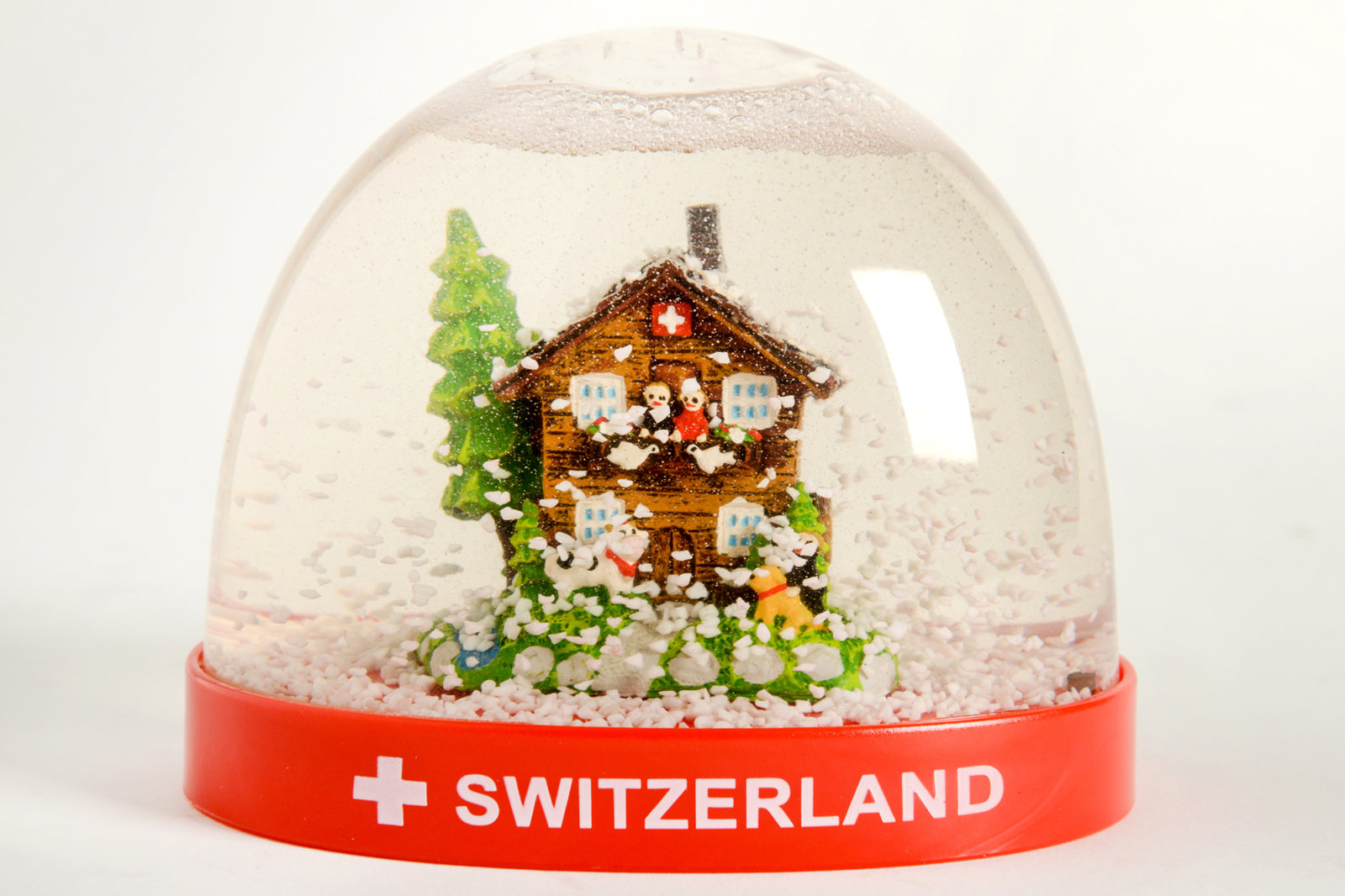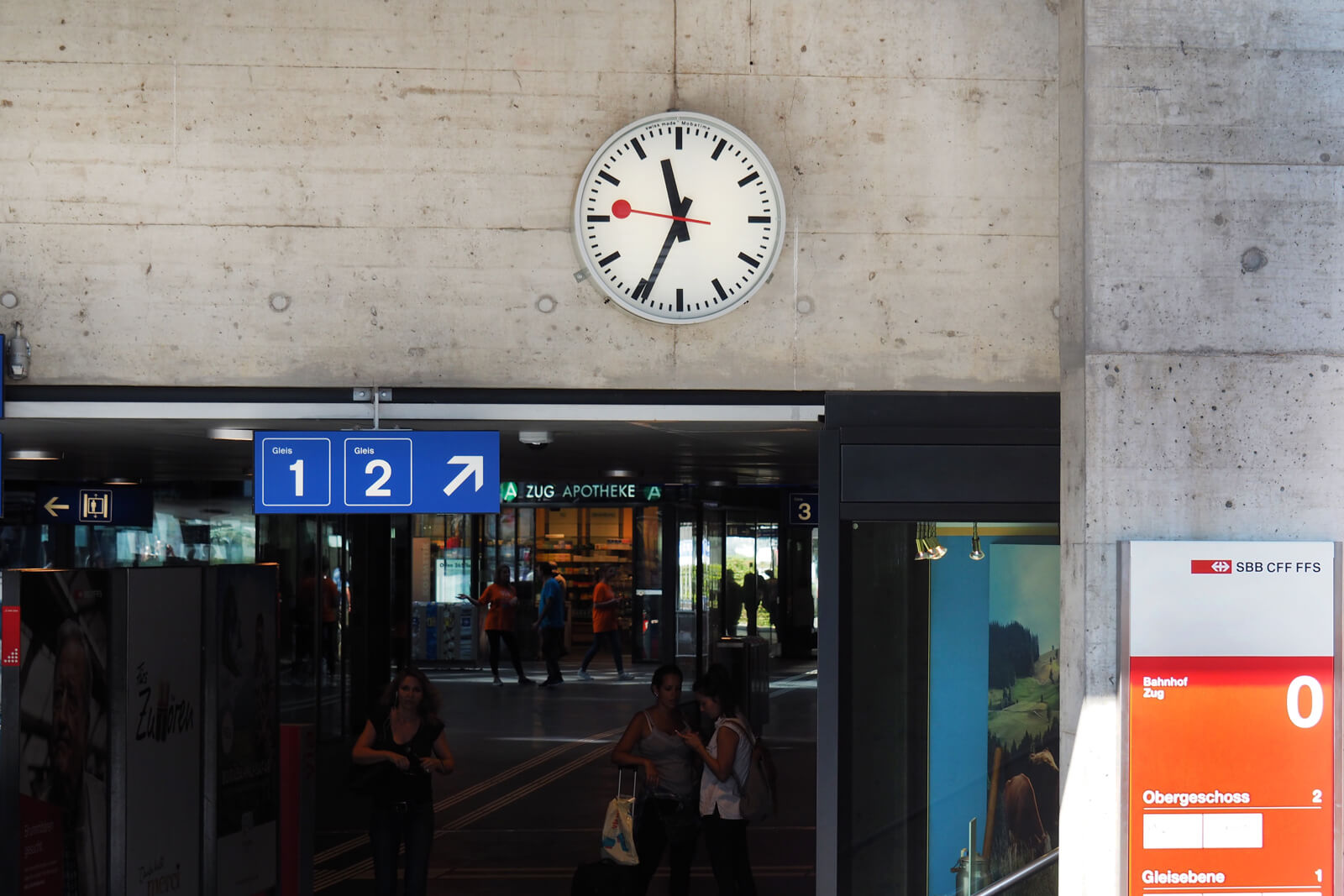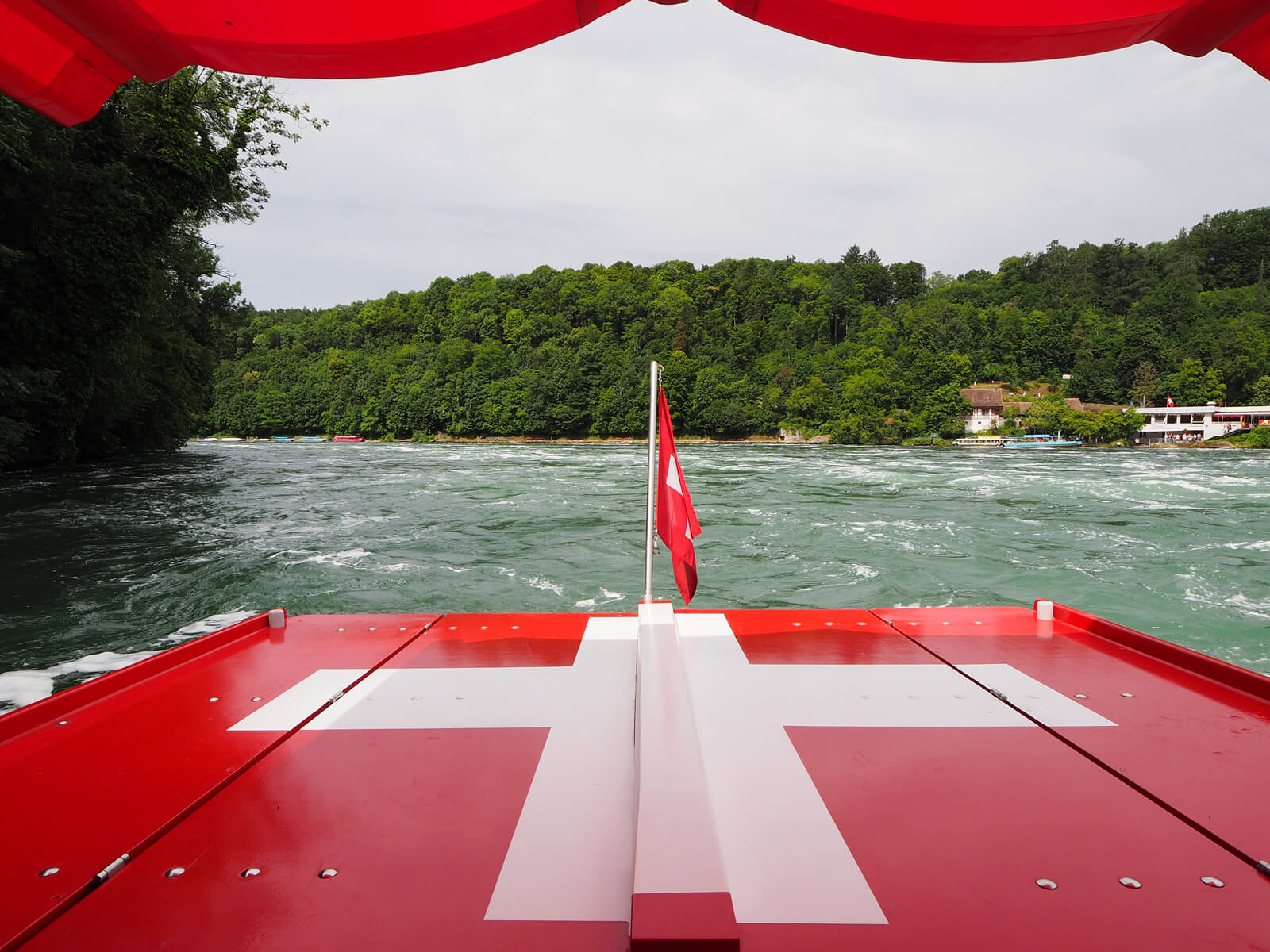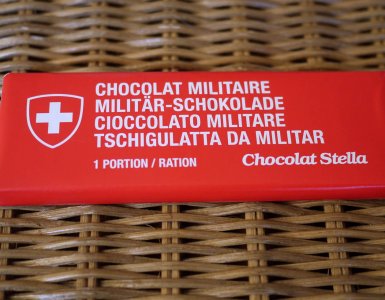Have you ever wondered, "Is Swiss and Switzerland the same?" You're not alone.
These terms often get tangled like forks in a pot of fondue. Where I’m from, Swiss and Switzerland are more than words; we would never dare mix them up. These terms are the essence of my little country, and I'm happy to fill you in on their meaning.
As you will see in this article, it’s about more than correcting a common mix-up. I'll explore the two terms by looking at Swiss heritage as much as the etymology of the words.
Can you bear another fondue analogy? Like blending different varieties of melted cheese in a pot, let’s mix and meld our linguistic and cultural understanding of Swiss and Switzerland.

Defining the Word “Swiss”
The term Swiss is an adjective describing everything that embodies Switzerland.
When we speak of Swiss chocolate or Swiss watches, we highlight products originating from Switzerland. Similarly, referring to someone as a Swiss citizen underscores their connection to Switzerland.
Or consider the Swiss Alps, a term that instantly brings up images of majestic mountains cradling this beautiful country. Then there is the universal appeal of Swiss cheese, known for its distinct taste. These are just a few common terms to show how the adjective “Swiss” seamlessly integrates into various contexts. Read on to learn why Swiss is not the same as Switzerland - and how to avoid pitfalls.
Difference Between Swiss and Switzerland: Key Points
Swiss: Describes products, culture, or people related to Switzerland.
Switzerland: Refers to the country itself.
Navigating the linguistic landscape of Switzerland can be as thrilling as a hike in the Alps. The key is knowing when to say Swiss and when to opt for Switzerland. Let's break it down with some handy examples:
When to Use Swiss
Swiss is your go-to adjective for describing anything related to Switzerland, be it culture, people, or products. Here are some phrases where Swiss fits perfectly:
- "I can't resist Swiss chocolate; it's simply divine!"
- "She is a proud Swiss artist known for her alpine landscapes."
- "Have you tried the Swiss fondue? It's a culinary delight!"
- "He bought an authentic Swiss watch on his trip to Zurich."
- "Their traditions are deeply rooted in Swiss culture."
When to Use Switzerland
Use Switzerland when referring to the country itself, whether it's about its geography, government, or as a travel destination. Here are examples that illustrate the use of Switzerland:
- "Next summer, we're planning a family trip to Switzerland."
- "The headquarters are located in Switzerland."
- "In Switzerland, you'll find some of the most breathtaking mountain scenery in the world."
- "The political system of Switzerland is known for its unique form of direct democracy."
- "She studied the history of Switzerland for her thesis."

Exploring the Meaning of “Switzerland”
The name Switzerland has a fascinating linguistic evolution deeply rooted in the country's history. It originates from Schwiizer, an old term referring to the inhabitants of the canton of Schwyz at the core of the early Swiss Confederacy. Schwiizer was initially used as an exonym by outsiders to describe the Confederate troops.
Following the Swabian War in 1499, the Swiss adopted the term alongside Eidgenossen, meaning “oath fellows.” Variations of Schwiizer spread to other languages like French, where Suisse emerged in the 16th century and later influenced the English Swiss.

The appellation Schwytzerland specifically denoted the territory of the Confederacy as distinct from just Schwyz canton. In the 17th and 18th centuries, Schweiz gained wider use as an endonym for the entire country. After the formation of the federal state in 1848, Schweiz became the dominant name, even being used officially in the constitution.
The English Switzerland evolved in tandem, likely through increasing trade, diplomacy, and cultural contacts. As Schweiz was solidified domestically, its translation equivalent, Switzerland, became standardized in English. Thus, the name reflects the nation's distinctive heritage and emergence as a unified identity.
Switzerland is much more than a dot on the map, though. It's a small, landlocked place, but it's packed with mountains and cultural diversity. On either side of the Swiss Alps, we have more living traditions than I can count.
If I had to sum up the concept of Switzerland, I would mention the natural beauty, the cultural diversity, and the different people who live here. We have folks from all backgrounds and cultures who speak different languages and celebrate their local traditions.
In a way, each city or canton could be doing its own thing and be considered a nation-state. Yet, since the birth of Helvetia, everyone believed in the benefits of a greater community, which is Switzerland.
Switzerland manages this delicate equilibrium by leveraging a unique cultural duality.
On one hand, the country is known for its cutting-edge technology hubs and thriving start-up ecosystem, paving the way for technological advancements across various sectors. Swiss cities like Zurich and Geneva act as focal points for research in areas such as biotech and finance, attracting talent from across the globe.
On the other hand, Switzerland remains deeply rooted in its heritage. The preservation of local customs and crafts is paramount.
Festivals like Fasnacht in Basel, along with the continued practice of watchmaking and chocolate craftsmanship, show a vibrant respect for the past. These traditions are living parts of Swiss culture, celebrated with pride by the communities that keep them alive.
This balance is also supported by a robust education system that integrates both innovation and tradition.
Institutions emphasize fostering creativity while respecting cultural history, ensuring future generations appreciate Swiss heritage as they contribute to the nation's modern landscape.
By nurturing a synergy between the new and the old, Switzerland creates an environment where both innovation and tradition can flourish side by side.
Heidi is a Swiss Ambassadrice
The novel "Heidi" holds a special place in Swiss culture and represents a key part of the country’s literary heritage. Written by Johanna Spyri, this beloved story has captivated readers worldwide, with translations in 70 languages. Its themes of simplicity, innocence, and a strong connection to nature align closely with Swiss values.
Beyond its literary significance, "Heidi" has inspired over 15 film adaptations, bringing its enchanting tale to the screen. I still remember being glued to the TV while watching an old, black and white version of "Heidi" during my childhood. Regardless of the movie version, stunning Swiss landscapes and traditional ways of life provided a sneak peek of Switzerland.
As a cultural ambassadrice, "Heidi" exemplifies Switzerland’s charm and reflects the rich traditions. The story of this charming little mountain girl invites readers and viewers alike to appreciate the unique spirit of Switzerland.
Why Is Switzerland's Transport System Innovative?
Switzerland's transport system is essential to its high quality of life. The wide network of trains, buses, and trams makes it easy to get around the country. Swiss trains are known for being on time and comfortable, turning commuting into a simple experience and giving residents more time for leisure or work.
The smooth connections between different transport options make transfers quick, reducing waiting times and increasing convenience. This system helps daily commuters and also supports tourism by making all parts of Switzerland easy to reach.
Sustainability is a key focus of the Swiss transport system. Many public transport options use clean energy, showing a commitment to protecting the beautiful landscapes that draw visitors.
As you can tell, Switzerland's efficient and eco-friendly transport system improves living standards by providing reliable and convenient travel options for everyone.
About the Regular-Interval Timetable
The introduction of the regular-interval timetable in 1982 revolutionized Switzerland's public transport system, making it more reliable and efficient. By ensuring that trains, buses, and other modes of transport operated at consistent intervals, it simplified travel for both residents and tourists.
Enhanced Punctuality
One of the most significant impacts was the improvement in punctuality. Passengers could plan their journeys with confidence, knowing that services would arrive and depart on time.
Improved Coordination
The timetable fostered better integration across different forms of transport. Seamless connections between trains and buses became possible, reducing wait times and enhancing the overall travel experience.
Increased Ridership
By making the public transport network more user-friendly, the regular-interval timetable attracted more riders. This, in turn, helped to reduce road congestion and promote eco-friendly travel alternatives.
Stimulated Economic Growth
Reliable public transport facilitated economic activities by ensuring reliable access to different parts of the country. Businesses could rely on timely delivery of goods and punctual employee commutes, contributing to Switzerland's economic dynamism.
The regular-interval timetable reshaped how people interacted with public transport, making it an integral part of life in Switzerland that I enjoy every day.

Common Mistakes and Misconceptions
Navigating the nuances of Swiss and Switzerland can sometimes lead to a few linguistic pitfalls.
One common error is misusing Swiss as a noun for Switzerland, the country.
Remember, Swiss adorns the attributes of Switzerland, like a label on fine Swiss chocolate or the craftsmanship of a Swiss watch. It's an adjective, not a substitute for the country's name.
Equally important is avoiding geographical mix-ups. Switzerland is its own unique entity, distinct from Sweden or any Scandinavian country, for that matter.
Mixing them up is like confusing a chocolate truffle for a meatball. Both are delightful, yet worlds apart.
Is Swiss the Same as Switzerland? Clarifying the Misconception
No, Swiss and Switzerland are not the same. Switzerland is the name of the country, while Swiss is an adjective used to describe things related to Switzerland. Here are some key points to clarify the difference:
- Switzerland refers to the country itself.
- Swiss describes products, culture, or people associated with Switzerland.
To illustrate the difference, consider these examples:
- "I bought a Swiss watch." (describing a product from Switzerland)
- "I am visiting Switzerland." (referring to the country)
Here are a few more Swiss vs Switzerland pitfalls to avoid:
- Mislabeling National Products: Referring to products from Switzerland as Switzerland products instead of Swiss is a slip-up. For example, it's Swiss Army knives, not Switzerland Army knives.
- Cultural Oversimplification: Reducing Switzerland's rich cultural tapestry to clichés about chocolate, cheese, or banking overlooks our diverse heritage, including the four official languages of Switzerland.
- Language Confusion: While Swiss does cover linguistic diversity, it's incorrect to assume that Swiss is a language. Switzerland is home to German, French, Italian, and Romansh-speaking regions, each contributing to the Swiss mosaic.
Remember, these distinctions matter. They're not just about linguistic accuracy; they reflect respect and appreciation for Switzerland's distinct identity and rich cultural heritage.
FAQ: Swiss vs. Switzerland
My Opinion about Swiss Identity
Being Swiss is like being part of a big, colorful family. Sure, you know about our watches and chocolate, but there's so much more to us.
In Switzerland, people speak German, French, Italian, and even a special language called Romansh. Every nuance is vital to our collective identity, from the melodic Italian spoken in Ticino to the cherished traditions of the Romansh community in Graubünden.
"Swiss" isn't just about where you're from or what language you speak. It's about being part of this mix, where everyone fits in no matter where they're from or their language. It's about living together and sharing our mountains, stories, and chocolate, too!

Switzerland's Global Recognition
While Switzerland is universally celebrated for its landscape, its global contributions extend far beyond. The Swiss banking system, known for its security and discretion, is a pillar of global finance. Swiss diplomacy and neutrality have also left a significant imprint on international relations.
And then there are the Swiss products we all know and love. Luxurious watches, decadent chocolate, dare I say: On shoes.
Things as small as a Swiss chocolate bar symbolize Switzerland’s influence on global culture and economy. It’s essential to recognize that Switzerland is more than just a picturesque destination; it’s a significant player on the world stage.
Innovation is another area where Switzerland shines. As a journalist, I’ve had the privilege of witnessing the cutting-edge advancements coming out of this country. Whether it’s in technology, pharmaceuticals, or robotics, Switzerland consistently ranks among the top for innovation.
Companies like Nestlé and Novartis are at the forefront, pouring resources into research and development. The Newly Swissed community in Switzerland is a firsthand example to show how this commitment not only drives growth but also attracts talent from around the globe.
What I find truly remarkable is how Switzerland manages to blend innovation with its rich cultural heritage. It's where mRNA meets Medieval!
This unique setting and the government support for innovation creates an economic environment that thrives on progress while honoring our roots. It’s a delicate balance, but one that keeps Switzerland at the pinnacle of global markets.
How Switzerland is Expanding Its Use of Renewable Energy Sources Like Photovoltaics
Switzerland is making significant strides in expanding its renewable energy portfolio. While hydroelectric power remains a cornerstone, the nation is actively investing in emerging technologies. Photovoltaics, in particular, are rapidly becoming a key player in Switzerland's energy mix.
Hydroelectric Power
The primary source of renewable energy in Switzerland is hydroelectric power. This form of energy capitalizes on the country's abundant water resources, harnessing the power of flowing water to generate electricity.
With Switzerland's mountainous terrain and numerous rivers, hydroelectric facilities play a critical role in the nation's energy landscape, significantly contributing to its renewable energy production. Not only is this a sustainable option, but it's also a key driver in Switzerland's efforts to reduce reliance on fossil fuels.
Embracing Solar Power
- Increasing Installations: There's been a surge in solar panel installations across residential and commercial properties. This trend is supported by government incentives and the decreasing cost of photovoltaic technology.
- Community Initiatives: Local communities are pulling together to sponsor larger solar projects, transforming underused spaces like roofs or brownfields into solar powerhouses.
Technological Advancements
Switzerland is at the forefront of photovoltaic innovation, focusing on enhancing efficiency and storage capabilities. Research institutions are developing cutting-edge solar technologies that promise to harness energy more effectively even in the country's varying climates.
Legislative Support
Recent legislative measures have also bolstered the shift toward solar energy. Policies that encourage investment and simplify permitting processes are making it easier for both individuals and businesses to contribute to a greener future.
Switzerland's expansion of renewable energy sources, with a special emphasis on photovoltaics, demonstrates a clear commitment to diversifying its energy landscape and reducing its carbon footprint.




